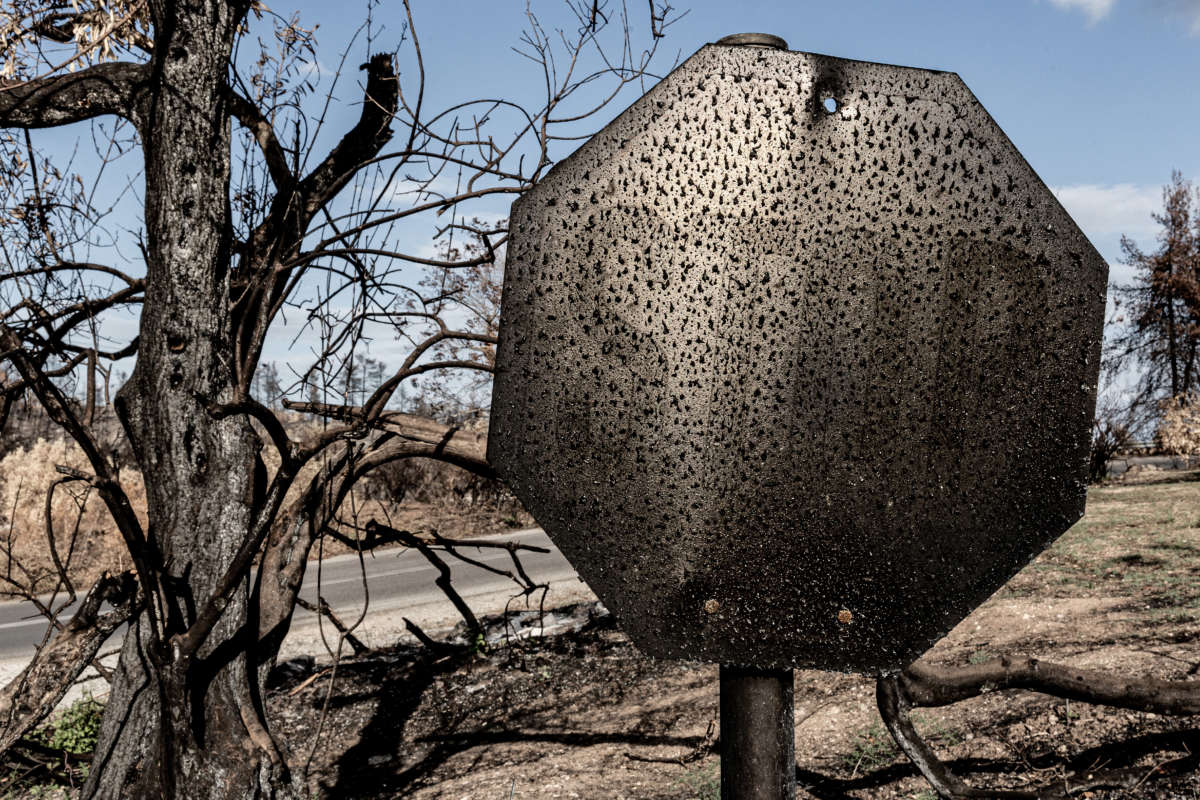Truthout is an indispensable resource for activists, movement leaders and workers everywhere. Please make this work possible with a quick donation.
Irreversible impacts of the climate crisis are getting locked in and the window to prevent even more dire changes is getting smaller, the Intergovernmental Panel on Climate Change warned in a new report on Monday.
The report, prepared by hundreds of researchers around the world, finds that the Earth’s temperature has already risen by 1.09 degrees Celsius and is on track to surpass the Paris Agreement’s goal of limiting warming to under 1.5 degrees Celsius within the next few decades. Some impacts to ecosystems and vulnerable regions are already permanent, and warming of 1.5 degrees or 2 degrees will only bring more damage.
Half of the world’s population is living with high vulnerability to the climate crisis, researchers found, while half of the species assessed by the IPCC have already shifted to different habitats in order to survive. Changes that are arising from greenhouse gasses are coming quicker than communities can adapt – and, in some cases, adaptation mechanisms are furthering the crisis.
“I have seen many scientific reports in my time, but nothing like this,” said António Guterres, secretary-general of the United Nations, in a press conference. “Today’s IPCC report is an atlas of human suffering, and a damning indictment of failed climate leadership. With fact upon fact, this report reveals how people and the planet are getting clobbered by climate change.”
Apathy from political leaders and the continued use of fossil fuels are to blame, Guterres emphasized. “Coal and other fossil fuels are choking humanity,” he said.
Extreme weather events like wildfires, heatwaves and flooding are already affecting people; heatwaves in the Pacific Northwest killed hundreds last year. Meanwhile, millions of people in Asia and Africa are being displaced due to storms and floods, and increased wildfires, tree mortality and thawing permafrost are further increasing greenhouse gas concentrations in the atmosphere.
Rising sea levels will rapidly increase displacement. Coastal populations, including those living in cities, are increasingly at risk of death or having to flee their homes. In the next decades, such resource loss could cause violent conflicts and mass migrations.
Impacts to the water system are also dire for humans. Record heat and droughts are exposing millions to growing water and food scarcity issues across all continents, while food production challenges are resulting in increased malnutrition, especially for Indigenous people and low-income communities. About half of the world’s population already experiences severe water scarcity for some part of the year.
These changes are having impacts on the global community’s mental and physical health. Climate-related illnesses have increased, along with the range of diseases. Storms and floods are causing more occurrences of gastrointestinal diseases like cholera, while wildfires and other air polluting events are causing more cardiovascular and respiratory diseases.
“One of the most striking conclusions in our report is that we’re seeing adverse impacts being much more widespread and being much more negative than expected in prior reports,” said Camille Parmesan, University of Texas at Austin ecologist and coauthor of the report.
Monday’s report is just one part of the IPCC’s overall package on the impact of the climate crisis; the first part of the report, detailing the physical elements of climate change, was released last summer. The most recent installment lays out how these impacts affect humans and society.
The report’s authors warn that while some changes are locked in, further climate impacts – and climate-related deaths – aren’t unavoidable. It’s up to wealthy, powerful governments to make the change.
But reporting has found that wealthy nations actively worked to weaken the portion of the report specifically tailored for policymakers; according to Climate Home News, nations like the U.S., Germany and France pushed for terms like “losses and damages” to be replaced with “adverse impacts.” Although the changes ultimately weren’t included, the effort is reflective of world leaders’ continued refusal to prevent climate disaster.
A terrifying moment. We appeal for your support.
In the last weeks, we have witnessed an authoritarian assault on communities in Minnesota and across the nation.
The need for truthful, grassroots reporting is urgent at this cataclysmic historical moment. Yet, Trump-aligned billionaires and other allies have taken over many legacy media outlets — the culmination of a decades-long campaign to place control of the narrative into the hands of the political right.
We refuse to let Trump’s blatant propaganda machine go unchecked. Untethered to corporate ownership or advertisers, Truthout remains fearless in our reporting and our determination to use journalism as a tool for justice.
But we need your help just to fund our basic expenses. Over 80 percent of Truthout’s funding comes from small individual donations from our community of readers, and over a third of our total budget is supported by recurring monthly donors.
Truthout has launched a fundraiser, and we have a goal to add 231 new monthly donors in the next 48 hours. Whether you can make a small monthly donation or a larger one-time gift, Truthout only works with your support.
